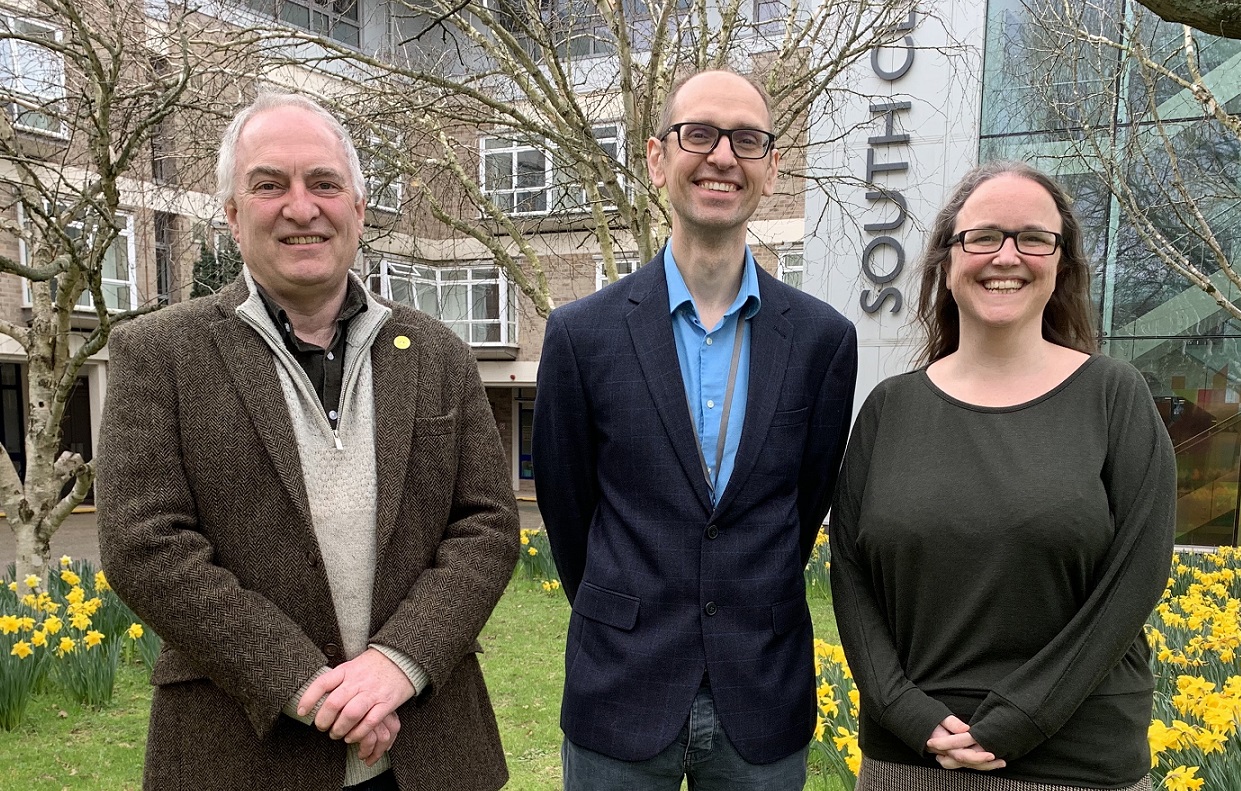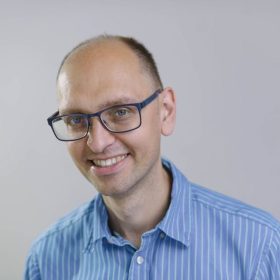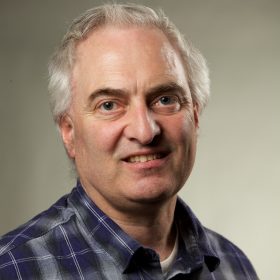We’ve all seen how the pandemic has brought about challenges and changes, some more positive than others. Our data science team PenCHORD (Peninsula Collaboration for Health Operational Research and Data Science) have risen to Covid-19’s research challenges by identifying how health and social care services can meet the extra demand placed on them and are readying themselves to meet what comes next with a restructured leadership team.
We are delighted, as a result, to welcome Dr Thomas Monks, a frequent and long-time collaborator and partner as PenCHORD’s Deputy Director and Chrissie Walker, with her extensive commercial, academic project management and operational experience, as the team’s Research and Operations Manager.

We caught up with Tom and Chrissie, along with PenCHORD Director Professor Martin Pitt, to see what the changes meant, for them, the team and our data science research.
Hello Tom! Tell us how you came to PenCHORD?
My very first post-doctoral role, way back in 2011, was with PenCHORD, so it’s been great to return to such a fantastic team. When I left PenCHORD in 2014 I joined Southampton to lead a data science team. It was a very positive experience, but I’ll admit that it was very much a baptism of fire! I’m hoping the leadership experience I accrued there will be a welcome contribution to PenCHORD. The team ethos – that the heart of our work is improving things for patients – is something I want to maintain as we grow.
We are committed to making our work openly accessible to everyone.
– Tom Monks
What opportunities do you see for PenCHORD in the future?
I’m very hopeful about our continued impact on the NHS and the experience of service users in the broadest sense. As an example, our team have an open working ethos for data science. We are committed to making our work openly accessible to everyone. The team have built a substantial open science toolkit that aligns with the direction of travel of NHSX and many pioneer NHS Trusts and organisations. This puts us in a good position to translate research and tools over to the NHS for longer lasting impact. We have gone down this route driven primarily by patient benefit, and good science. But we also know that open science is going to become increasingly important for funders over the next few years and already have a demonstrable track record.
I also want the team to further align our work with the work of the Alan Turing Institute and Exeter’s Institute of Data Science and AI – both of which I’m a part. We are already working and learning from the latter through our NIHR HS&DR funded studies, where we apply machine-learning to stroke audits. I think the health services research angle puts PenCHORD in an interesting and complementary position relative to other health data science research groups whose focus is precision medicine.
Hello Chrissie! Welcome to PenARC! How do you see your role within the PenCHORD team?
I’m really enjoying getting to know everyone and understanding what they each want to achieve in their research careers and work with Martin and Tom to support them to get there. I want to develop clear and straight-forward processes within the team, so our researchers can focus on their research, and not waste time dealing with too much bureaucracy (although I’m afraid I can’t remove it completely!). We had a fantastic two day event at the end of March where we came together (some of us meeting in person for the first time) and talked through what we’d like to achieve both as a group, and as individuals, and how we’d like to see PenCHORD develop. Martin, Tom and myself are now working with everyone to put these plans into action.
How do you see PenCHORD developing?
I’ve already been really impressed by the impact of the team’s work – we work directly with clinicians, applying our research skills to live problems, and we can quickly generate information and solutions that make positive changes directly. A great example is our work on the bladder cancer pathway at RCHT.
I think there’s a real opportunity for us to facilitate more researchers in data science to apply their skills operationally within the NHS. I’d like to help continue to build research links between PenCHORD, the NHS and the wider University – across the group we’ve already got great networks, and we’re in a fantastic position to work with our partners to build new connections. We’ve been recruiting for research roles, with one role still available and have secondments for later in the year. Our fantastic Health Services Modelling Associates Programme continues to provide new research links nationally, as well as our links (through Tom and Martin) with the MSc in Health Data Science, so there’s plenty of opportunity for growth.
I think there’s a real opportunity for us to facilitate more researchers in data science to apply their skills operationally within the NHS.
– Chrissie Walker
How have you found joining the team?
When I joined PenCHORD in December, it was immediately apparent how kind and supportive everybody was. Over the last two years, with the pandemic and all the difficulties that brought, PenCHORD was a group that pulled together and supported each other. That’s something I’ve really valued since joining and I want to make sure we keep that culture as we grow and develop. Martin said in an early meeting that work can feel like fun if done right, and it’s been a lot of fun so far!
Hello Martin! There are a lot of changes happening, why do you think this is such an exciting time for PenCHORD/Operational Research & Data Science?
Recent social and technological developments have highlighted the need for greater use of operational research and data science, so there’s a lot of opportunity to have a really positive impact. More recently, the Covid-19 pandemic has highlighted the important role that data science, modelling and analysis can play in critically informing and supporting decision-making across the NHS and public services.
In PenCHORD, we’re focused on the application of new approaches to the front line of delivery and we work closely with health and care professionals to improve services across a wide range of different organisations and contexts. Our foremost motivation is seeing how research methods can make a real difference to the delivery of health and care services and ultimately improve the lives of patients.
PenCHORD has a key role and opportunity in developing practical solutions and in building learning and capacity within services.
– Martin Pitt
What new opportunities are there?
The rapid evolution of data science across a range of different fields has presented a host of opportunities to health research. Approaches include applying machine learning, natural language processing, genomics, image recognition, geographic location analysis and patient path, artificial intelligence to the huge amount of data that is being produced within healthcare.
These are already making a difference across services, for example through the use of diagnostic algorithms to support decision making or in streamlining pathology.
But this is just the beginning. The UK government is recognising this potential by establishing national organisations such as Health Data Research UK to support development and training. Coupled with this is the urgent need to harness these tools effectively to deliver improvements at the front line of delivery. PenCHORD has a key role and opportunity in developing practical solutions and in building learning and capacity within services.
Can you tell us what you see Tom & Chrissie bringing to the team?
As PenCHORD develops, we need sustainable and effective strategic guidance. The recent addition to the PenCHORD leadership team of Chrissie and Tom provides the ideal basis for management, oversight, and communication.
Chrissie brings a wealth of experience in driving forward research initiatives in addition to her strategic and operational expertise. Tom brings considerable technical skills as well as his leadership experience. We’ve quickly developed a very effective and positive team dynamic, which I’m certain will provide the sustained, balanced, and dynamic leadership required to take us forward in these exciting times.
Authors

Dr Thomas Monks
Associate Professor of Health Data Science
